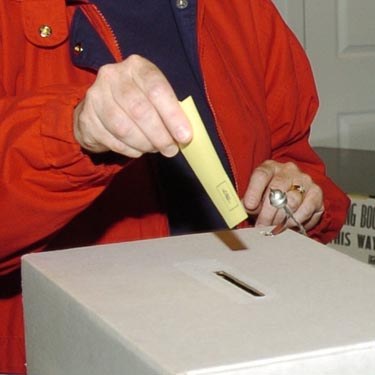YouGov’s latest polling for the European elections next month show a post-debate boost for Nigel Farage’s UKIP, jumping five points from last week up to 28%.
There are plenty of reasons this should not worry us. Firstly, it is unsurprising, given Farage has come had near positive press over the past two weeks, following two televised victories over one of Britain’s most unpopular politicians. We know how short-lived poll bounces can be: just look at how quickly the Tories’ post-budget boon dissipated.
This is, too, only a single poll – and we are forever being warned against reacting in any way towards a single poll. We are to look for the trend and that shows Labour stably polling 30+%, which is double what we got in 2009.
And on top of it all, Labour still hold a two point lead. These are the headlines for the Keep Calm and Carry On brigade.
But, just as Mark Ferguson warned this morning, complacency can kill off any election campaign.
The worries for Labour start when YouGov begin to ask whether people were likely to bother. Of the Labour supporters, less than half said they were “certain to vote”. Of UKIP voters, that figure was over 60%. In an election with a proportional representation system and traditionally low turnout, voter apathy amongst your own supporters can quickly turn into a big problem.
Indeed, if you look at a poll comprised solely of people who are definitely going to the polling station on the 22nd May, it begins to look very different. Labour drop to 27%. Suddenly UKIP have a seven point lead.
Take comfort in whatever you want, but that does not make for easy reading and cannot be ignored. Seven points is too great a gap to be dismissed with only weeks to go until polling day. It shows our support is less than enthusiastic, while UKIP’s appears to be growing. While YouGov’s is the only poll showing something so drastic, it’s not the only one showing things heading this way – a recent ComRes poll of definite voters has Labour and UKIP neck and neck. That at least suggests that if a huge UKIP lead does exist, it isn’t solid, but does seem to prove that we’ll by vying it out for first place on election day.
Our reaction to this should not be to panic, for the support is clearly there: our concern must be with mobilising it. While this last month has seen people queueing up to warn against a 35% strategy that merely seeks to consolidate the voters we already have, this shows that there is still work to do in convincing people who want to vote Labour that it is worthwhile. This doesn’t necessarily mean “narrowing the offer”, it just means making sure you have a sturdy base before you start to build.
Labour could, and should, come first in the European elections. We all know that no other party runs Get Out The Vote operations on par with Labour’s. This time around, it needs to start now, and it can’t just be about activists knocking on doors – everything Labour does needs to be about enthusing people to vote Labour again.




More from LabourList
Almost half of Labour members oppose plans to restrict jury trials, poll finds
‘How Labour can finally fix Britain’s 5G problem’
‘The University of the Air – celebrating 60 years of Harold Wilson and Jennie Lee’s vision’